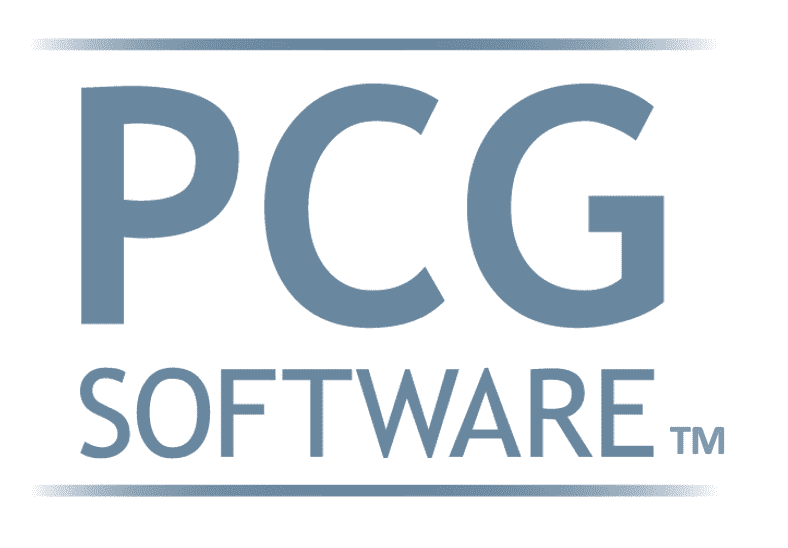AI is Built to Help not Replace
We'll be exploring why AI medical claims auditing software is meant to help medical claims analysts and teams increase compliance and reducing costs, not replace them on both the post and pre-payment landscape for years to come.
Post-Payment Auditing & Recoveries
With billions of dollars circulating in the healthcare system annually, even a small percentage of errors can lead to substantial financial discrepancies. This is where health plan claims auditing emerges as a critical tool, capable of identifying and recovering millions in overpayments that stem from incorrect medical coding.
The Problem: Incorrect Medical Coding
Incorrect medical coding can occur due to a variety of reasons, including human error, complex coding systems, and sometimes, fraudulent activities. These inaccuracies can lead to overpayments, where health plans pay more than what is appropriate for the services rendered. Given the volume of claims processed daily, these overpayments can accumulate quickly, diverting valuable resources away from essential healthcare services.
The Solution: AI Claims Auditing with Virtual Examiner ® (VE)
Health plan claims auditing involves a thorough review of processed claims to ensure that payments made to healthcare providers are accurate and justified. Your eligibility, authorizations, and claims management system as great as it may be will still not:
Identify Overpayments: Auditors look for patterns and anomalies that suggest overbilling or incorrect coding, focusing on high-risk areas where errors are most likely to occur.- Recover Lost Funds: Once identified, steps are taken to recover overpayments. This not only involves recouping funds but also working with providers to correct billing practices, thereby preventing future errors.
- Enhance Compliance and Accuracy: The auditing process helps health plans and providers adhere to complex billing regulations, reducing the risk of compliance issues and promoting accurate coding practices.
NCCI Edits and Provider Contracts
Ensuring compliance with the National Correct Coding Initiative (NCCI) edits is paramount for maintaining the integrity and accuracy of medical coding and billing practices. NCCI edits, established by the Centers for Medicare & Medicaid Services (CMS), play a vital role in preventing improper billing of codes for procedures that should not be billed together. However, the healthcare industry faces significant challenges, particularly when health plans create provider contracts that do not adhere to these edits. This article explores the pivotal role of VE, a sophisticated software solution, in identifying and addressing NCCI edit violations before payments are disbursed.
The Challenge: Non-Compliant Provider Contracts
The crux of the issue lies in health plans establishing contracts with providers that violate NCCI edits, either inadvertently or intentionally. These contracts may allow for the billing of services that, according to NCCI guidelines, should not be billed in conjunction. The repercussions of such discrepancies are far-reaching, leading to financial inefficiencies, compliance risks, and undermining the standardized coding system.
VE: The Solution
VE emerges as an indispensable tool in navigating these challenges. This advanced software solution is designed to meticulously analyze billing codes against NCCI edits, identifying potential violations before claims are paid. By integrating VE into the claims processing workflow, health plans can achieve several key objectives:
- Pre-payment Compliance Checks: The VE scrutinizes each claim for compliance with NCCI edits, ensuring that payments are only made for appropriately billed services.
- Financial Integrity: By preventing overpayments associated with non-compliant billing practices, VE helps in conserving financial resources and reducing healthcare costs.
- Risk Mitigation: The software significantly lowers the risk of compliance issues and legal repercussions by ensuring adherence to established billing guidelines.
- Operational Efficiency: Automating the compliance check process with VE reduces the administrative burden on health plans, streamlining operations and facilitating faster, more accurate claim processing.
Implementing VE
The implementation of VE into the healthcare billing ecosystem necessitates a strategic approach:
- Integration with Existing Systems: Ensuring seamless integration of VE with existing claims processing systems is crucial for maximizing its effectiveness.
- Training and Support: Providing comprehensive training for staff on how to use VE effectively, coupled with ongoing support, is essential for smooth operation.
- Continuous Update Mechanism: Keeping VE updated with the latest NCCI edits and billing guidelines is vital for maintaining its relevance and effectiveness.
The Impact: Recovering Millions
The impact of claims auditing on recovering millions in overpayments is significant. For example, audits can uncover instances where expensive procedures were billed instead of less costly ones, or where services were billed but not provided. By correcting these errors, health plans can recover substantial amounts of money. This not only improves the financial health of the plan but also contributes to the overall efficiency and fairness of the healthcare system.
Moreover, the deterrent effect of regular audits cannot be underestimated. Providers become more diligent in their billing practices, knowing that their claims are subject to review. This proactive approach to ensuring accuracy further helps in reducing overpayments over time.
Pre-Payment Auditing
Get 100% claims auditing every night to reduce overpayments from unbundling, split billing, and over 400 additional reason codes based on AMA and CMS guidelines.
Maximizing Savings Every Checkrun
In the intricate ecosystem of healthcare billing and payments, managing overpayments remains a critical challenge for health plans and insurance providers. Overpayments not only represent a significant financial drain but also complicate the operational workflow, leading to inefficiencies and increased administrative burdens. Implementing pre-payment auditing, particularly through sophisticated tools like VE, offers a compelling solution to these issues, potentially saving 5-15% in overpayments and translating these savings into massive monthly financial and operational gains.
The Importance of Pre-Payment Auditing
Pre-payment auditing involves analyzing claims for accuracy and compliance with billing guidelines, including adherence to National Correct Coding Initiative (NCCI) edits, before disbursing payments. This proactive approach allows health plans to identify and rectify billing errors, unauthorized services, and fraudulent claims before any money changes hands. The benefits of pre-payment auditing are manifold, including preventing overpayments, ensuring regulatory compliance, and enhancing the overall integrity of the billing process.
VE: A Strategic Asset in Pre-Payment Auditing
VE stands out as a premier software solution designed to automate and streamline the pre-payment auditing process. By integrating VE into their operational workflow, health plans can leverage its advanced algorithms and comprehensive database of coding guidelines and NCCI edits to scrutinize every claim every night, and ensure maximized compliance and savings. How much savings?
Saving 5-15% in Overpayments
The implementation of VE can lead to significant financial savings. By catching inaccuracies, duplicative billing, and non-compliant claims before payment, health plans can avoid 5-15% of overpayments. Given the volume of claims processed monthly, this percentage translates into substantial savings. For a health plan processing millions of dollars in claims, even the lower end of this saving range can amount to hundreds of thousands of dollars in monthly savings.
Enhancing Operational Workflow Efficiency
Beyond the direct financial benefits, VE significantly impacts operational efficiency. Pre-payment auditing with VE minimizes the need for time-consuming post-payment recovery efforts, reducing administrative overhead and freeing up resources to focus on other critical aspects of healthcare management. This streamlined workflow not only improves the speed and accuracy of claim processing but also enhances provider satisfaction by ensuring timely and accurate payments.
Cleaner Encounter Data
Cleaner encounter data offers significant benefits to health insurance payers, including Independent Physician Associations (IPAs), Management Services Organizations (MSOs), and health plans, by improving the efficiency, accuracy, and overall management of healthcare services and financial transactions. Here's how cleaner data positively impacts these entities:
Improved Accuracy and Reduced Errors
- Error Reduction: Cleaner data minimizes coding errors and incorrect information, which can lead to claim denials and delays. By ensuring data is accurate from the outset, payers can reduce the time and resources spent on correcting errors.
- Enhanced Data Quality: Accurate encounter data ensures that health insurance payers receive reliable information for processing claims, making payments, and conducting health services analyses.
Enhanced Decision Making
- Data-Driven Decisions: With cleaner data, IPAs, MSOs, and health plans can make more informed decisions regarding patient care management, policy development, and strategic planning.
- Risk Management: Improved data quality helps in better risk adjustment, allowing payers to more accurately predict costs and set premiums accordingly.
Operational Efficiency
- Streamlined Claims Processing: Cleaner data leads to fewer claim rejections and re-submissions, thereby speeding up the claims processing cycle and improving operational efficiency.
- Cost Savings: By reducing the need for manual data correction and minimizing claim denials, payers can achieve significant cost savings.
Compliance and Reporting
- Regulatory Compliance: Accurate and complete data is crucial for meeting regulatory reporting requirements and avoiding penalties. Cleaner data ensures that reports are accurate and submitted on time.
- Performance Measurement: Health plans and IPAs can use high-quality data to measure performance against benchmarks and identify areas for improvement.
Improved Patient Care
- Better Health Outcomes: Cleaner encounter data can contribute to better patient care by ensuring that healthcare providers have accurate and comprehensive patient information, facilitating more informed treatment decisions.
- Population Health Management: Enhanced data allows for more effective management of population health initiatives by identifying at-risk populations and tracking health outcomes over time.
Financial Integrity
- Fraud Detection: High-quality data can help detect and prevent fraud by making discrepancies easier to identify.
- Accurate Payment and Reimbursement: Cleaner data ensures that payments to providers are based on accurate and verifiable services rendered, reducing the likelihood of overpayments or underpayments.
Gain a FREE 3-year Claims Audit today
In as little as 10 days we’d be honored to audit three years of claims, provide all claims and trends of incorrect coding and possible fraud, NCCI edit liability, and how VE can not just help you save millions in claims auditing in the future but millions in recoveries. Please contact us today via phone or contact form for your FREE claims audit.
Our History and Credibility in Reporting this Information:
For over 30 years, PCG Software Inc. has been a leader in AI-powered medical coding solutions, helping Health Plans, MSOs, IPAs, TPAs, and Health Systems save millions annually by reducing costs, fraud, waste, abuse, and improving claims and compliance department efficiencies. Our innovative software solutions include Virtual Examiner® for Payers, VEWS™ for Payers and Billing Software integrations, and iVECoder® for clinics.




